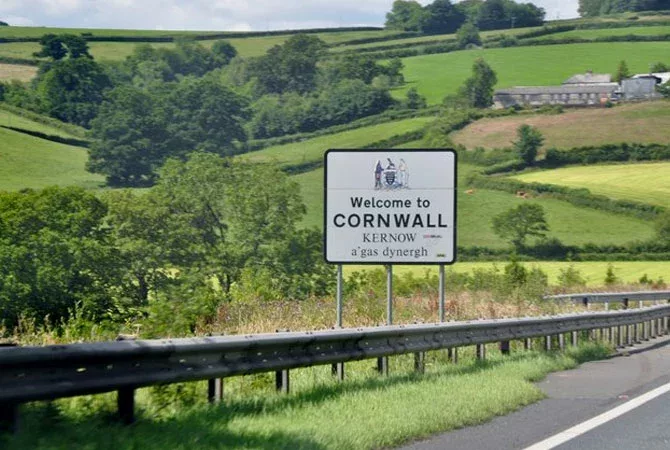A new survey of Cornwall residents reveals they strongly back ambitious climate actions. The findings also reveal that Cornish residents are more concerned about climate change than the rest of the UK but need the right support from government to make pro-environmental changes.
The one-year research project, led by the Centre for Climate Change and Social Transformations (CAST) at the University of Bath in collaboration with Cornwall Council, investigated Cornwall residents’ willingness to change their behaviours in favour of low-carbon alternatives. 859 residents responded to the public survey and were asked about four key lifestyle areas: travel, home energy use, products they buy, and food. It also explored to what extent the cost-of-living crisis has prompted their openness to change behaviours, as well as their confidence in Cornwall Council in addressing climate change.
The survey report ‘Cornwall Council behaviour change and engagement programme – survey of residents’ highlighted that Cornwall residents overwhelmingly back climate action and are more likely to be open to advice that is ‘framed around the economic benefits of climate action.’
For example, most people were supportive of policies that reduce carbon emissions and heating costs, with 72.7% agreeing that measures to tackle the cost-of-living crisis can also be beneficial in tackling climate change.
It also revealed that Cornwall residents are highly aware of what is happening with the climate crisis. They believe that Cornwall is already experiencing multiple climate-related impacts, such as droughts and severe storms, and expressed a higher level of concern about climate change than the rest of the UK. Respondents placed the most responsibility on the Government and businesses to address climate change, rather than Cornwall Council or individual households.
CAST Research Associate Dr Mark Wilson, co-author of the study who is based at the University of Bath, stressed the importance of both individual and systemic change. He said:
“It’s striking that residents are so concerned and informed about the climate crisis, and that they are keen to play their part. However, while every individual has a crucial part to play in reaching net zero, they will need continued actions taken at a higher level including by the Council and government to enable them to make low carbon choices.”
The new report highlights that the most challenging lifestyle area for Cornish residents to change was travel. Car travel was reported to be the most popular mode of transport, particularly for commuters (38%), with most journeys being single occupancy – unsurprising given the large rural geography.
However, the findings also demonstrated that there is a ‘strong interest’ among residents in active travel, as well as a moderate interest in using public transport. People were more likely to use active travel for non-commutes with one in five saying they choose active travel (on foot and bicycle) to get to work whilst 59% report doing it for non-commute journeys.
When it comes to respondents’ interest in adopting sustainable travel habits for the future, 20% claimed they were thinking about buying an e-bike and one third said that they were also already considering buying an electric car. Yet, those who wish to make the switch to active travel face personal and practical barriers which prevent or discourage them from doing so such as long journey distances, concerns around road safety and a lack of walking/cycling infrastructures.
Respondents identified a clear role for the Council to take in terms of financially supporting public transport and cycle lanes, developing renewable energy infrastructure, and using regulations to raise environmental standards for new housing. They also gave their widespread support for travel policies which reduce emissions as well as improve their health and wellbeing. 62.2% supported low speed zones, however one in four were against low emission zones.
From these findings, the researchers suggest that most residents would like to see pedestrians favoured over cars by ‘increasing road safety, improving air quality and creating more traffic free space.’ The results indicate strong public support for several policy measures which the Council is already implementing to reduce emissions and provide co-benefits for society.
Councillor Martyn Alvey, Cornwall Council’s cabinet member for environment and climate change, said:
“We cannot tackle climate change alone which is why we have worked to engage our residents including commissioning this ground-breaking research with the Centre for Climate Change and Social Transformations at the University of Bath.
“We commend our residents for recognising and voicing the need to urgently take action on climate change. This report will help us frame our next phase of action on lowering emissions in Cornwall, a journey which has already seen us launch initiatives such as our Climate Emergency Development Plan Document to improve emissions standards of new homes; a raft of green travel measures such as the bus fares pilot; and supporting energy innovation such as deep geothermal and wind power.”
Professor Lorraine Whitmarsh MBE, CAST Director, environmental psychologist at the University of Bath and co-author of the research project, adds:
“Our research reveals that people in Cornwall are even more concerned about climate change than those living elsewhere in the UK; they are also keen to play their part in tackling it but need the right support to help them change their behaviour.
“Key opportunities for local authorities to support behaviour change include expanding shared mobility schemes and electric charging infrastructure and providing information and incentives to support domestic renewable uptake.”
























